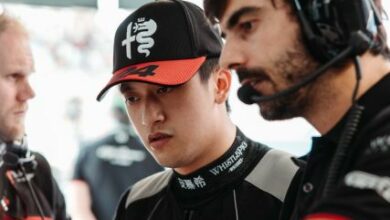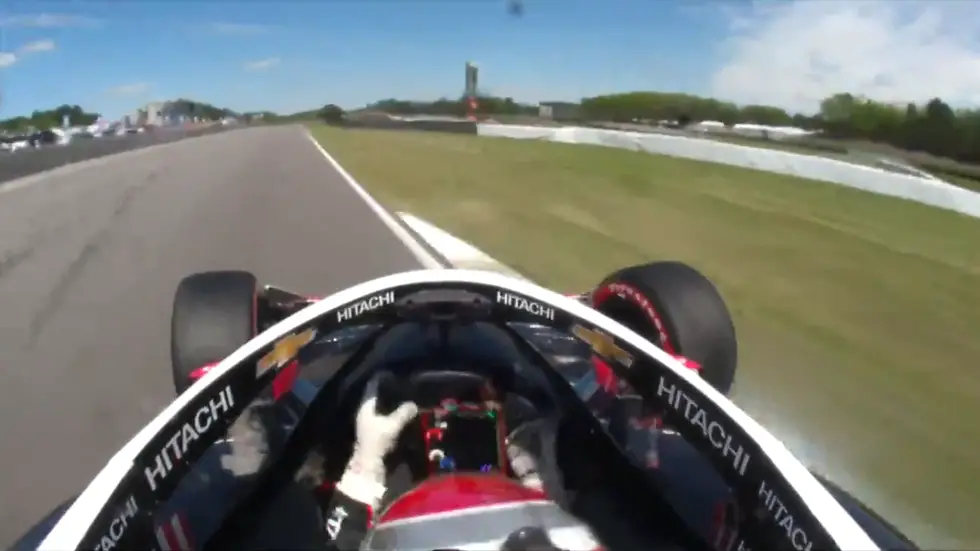F1 Controversy: Teams’ Stance on ‘Force Majeure’ Clause Sparks Debate at Las Vegas GP
In the wake of the recent Las Vegas GP, AlphaTauri CEO Peter Bayer reminded Ferrari and other F1 teams of their collective decision against a “force majeure” clause in the rules. This reminder came after Ferrari faced a penalty due to an incident beyond their control.
Key Takeaways:
- The Incident: During the Las Vegas GP’s FP1, Carlos Sainz’s Ferrari was damaged by a drain hole cover, necessitating a new battery and power unit. This led to a 10-place grid drop penalty for Sainz, as it exceeded the allocated amount of major parts replacements.
- Ferrari’s Request Denied: Ferrari’s appeal to consider the incident as an exception under a “force majeure” clause was rejected by the stewards. They stated that the regulations do not allow for such exceptions, even in unusual circumstances.
- AlphaTauri’s Stand: AlphaTauri CEO Peter Bayer highlighted that all F1 teams, including Ferrari, had previously voted against the inclusion of a “force majeure” clause. He admitted that in this specific case, AlphaTauri would have supported Ferrari, acknowledging that the incident was not their fault.

In a recent development that has stirred up the Formula 1 world, AlphaTauri CEO Peter Bayer has publicly reminded Ferrari and other teams about their collective decision to vote against the inclusion of a “force majeure” clause in the sport’s regulations. This reminder came in the context of a controversial incident at the Las Vegas Grand Prix, where Carlos Sainz’s Ferrari suffered damage due to an external factor, leading to a significant penalty.
During the first practice session (FP1) of the Las Vegas GP, Sainz’s car hit one of the drain hole covers on the track, causing substantial damage that necessitated the replacement of his battery and power unit. Under the current F1 regulations, this replacement exceeded the permitted number of major parts changes, resulting in a 10-place grid drop penalty for Sainz. Ferrari, feeling aggrieved by the penalty, appealed to the stewards for an exception, arguing that the incident was neither the driver’s nor the team’s fault.
However, the stewards stood firm on their decision, stating that the regulations did not permit any exemption under “force majeure.” Their official statement emphasized the obligation of all officials to apply the regulations as written, leaving no room for discretionary decisions based on unusual circumstances.
Adding a new dimension to the debate, Ferrari Team Principal Fred Vasseur expressed his displeasure in a press conference, calling the incident “unacceptable.” Carlos Sainz also expressed his surprise at the lack of provision in the rules for the governing body to make exceptions in cases of force majeure.
In a significant twist, AlphaTauri CEO Peter Bayer brought to light the fact that it was the F1 teams themselves who had previously voted against the inclusion of a “force majeure” clause. Speaking to Motorsport.com, Bayer noted the teams’ reluctance to open what he described as “Pandora’s box,” fearing that such a clause would lead to numerous claims under force majeure. Interestingly, Bayer admitted that AlphaTauri would have supported Ferrari in this particular case, acknowledging the fairness of their position.
This incident and the ensuing debate have brought the issue of “force majeure” to the forefront in F1 discussions. It is set to be a key topic at the upcoming F1 Commission meeting in Abu Dhabi, where teams, stakeholders, and governing bodies will likely reevaluate the implications of the current regulations and the potential need for amendments. The controversy underscores the delicate balance between strict adherence to rules and the need for flexibility in the face of unforeseen circumstances in the high-stakes world of Formula 1 racing.




